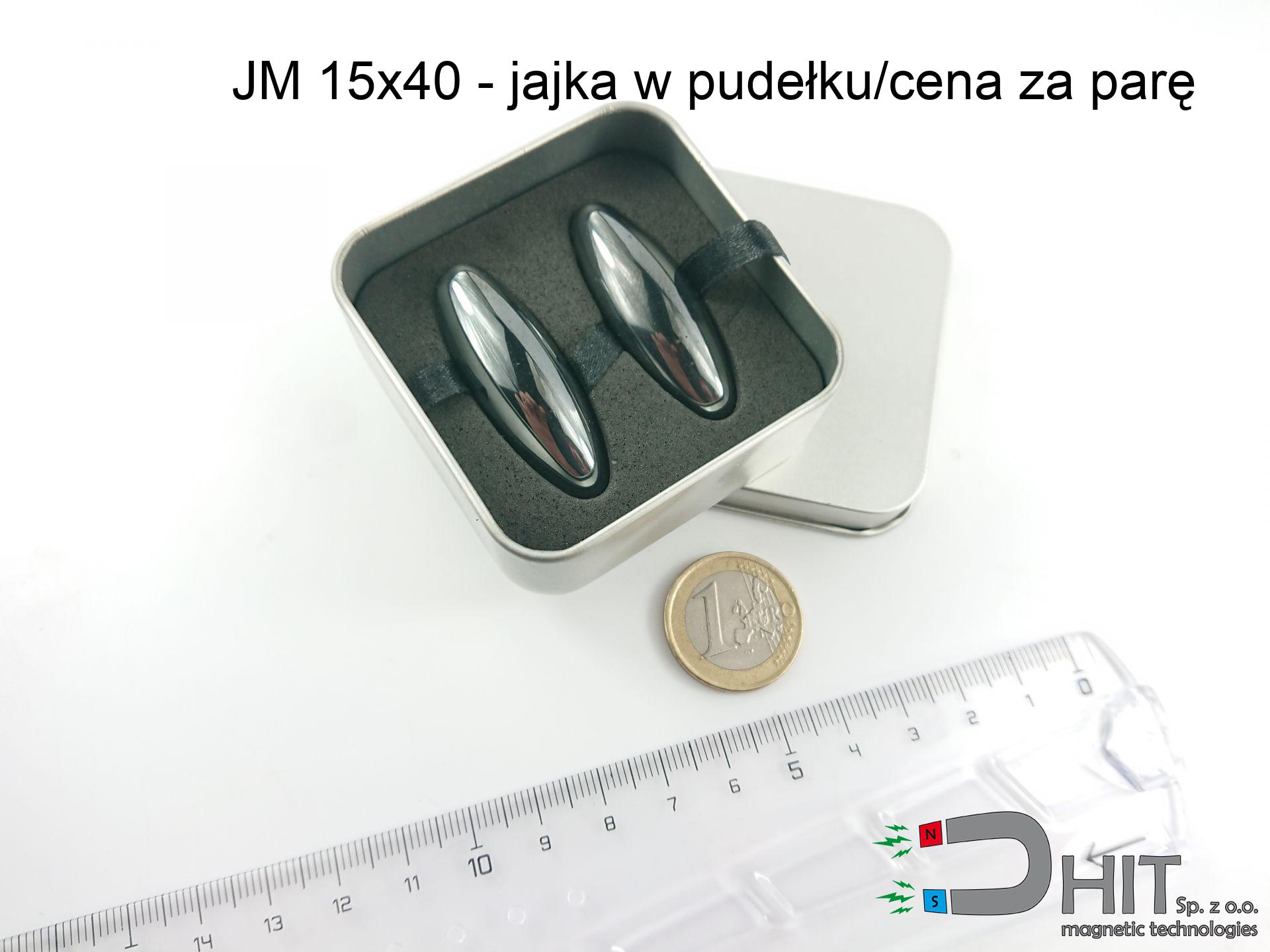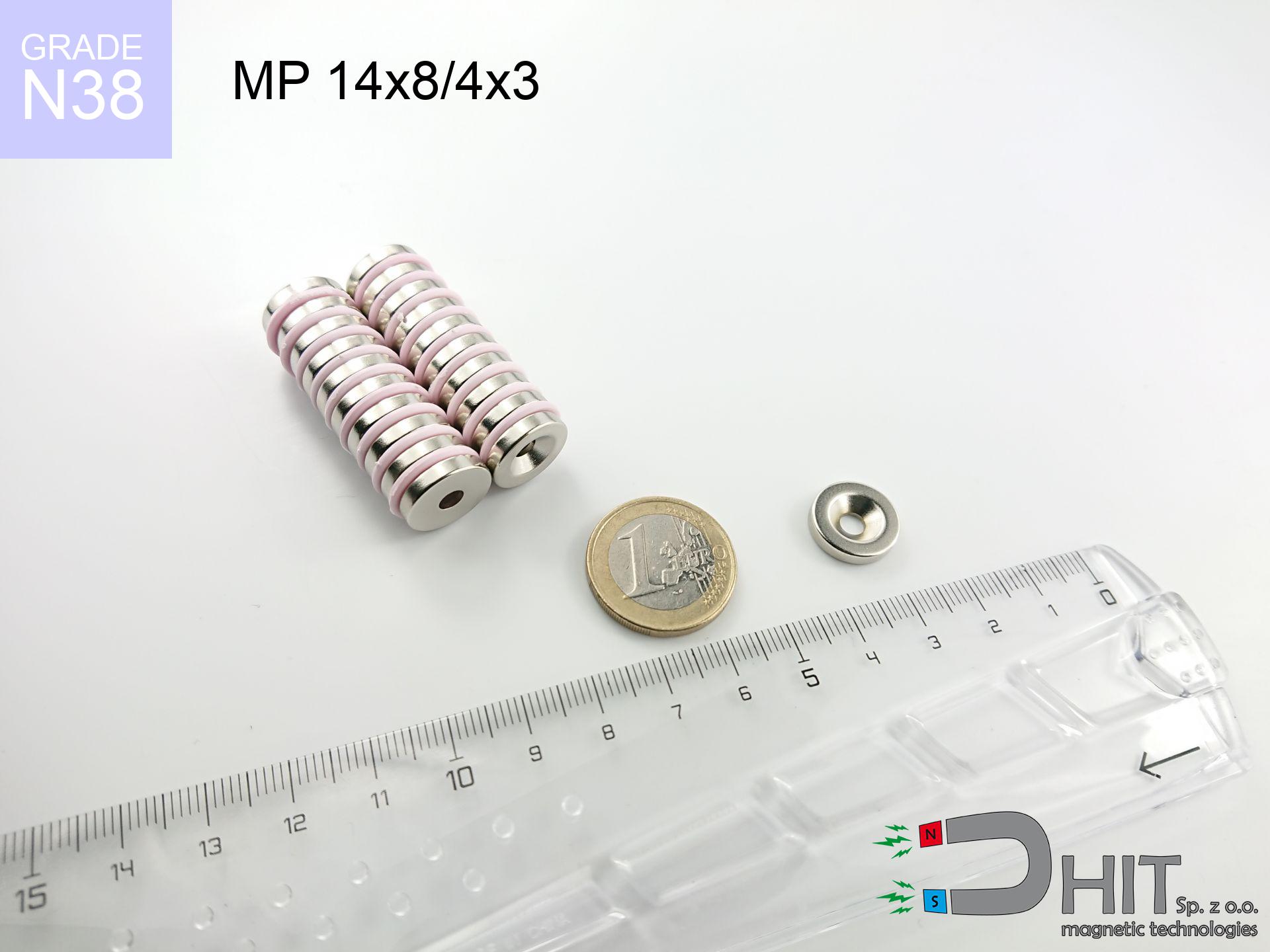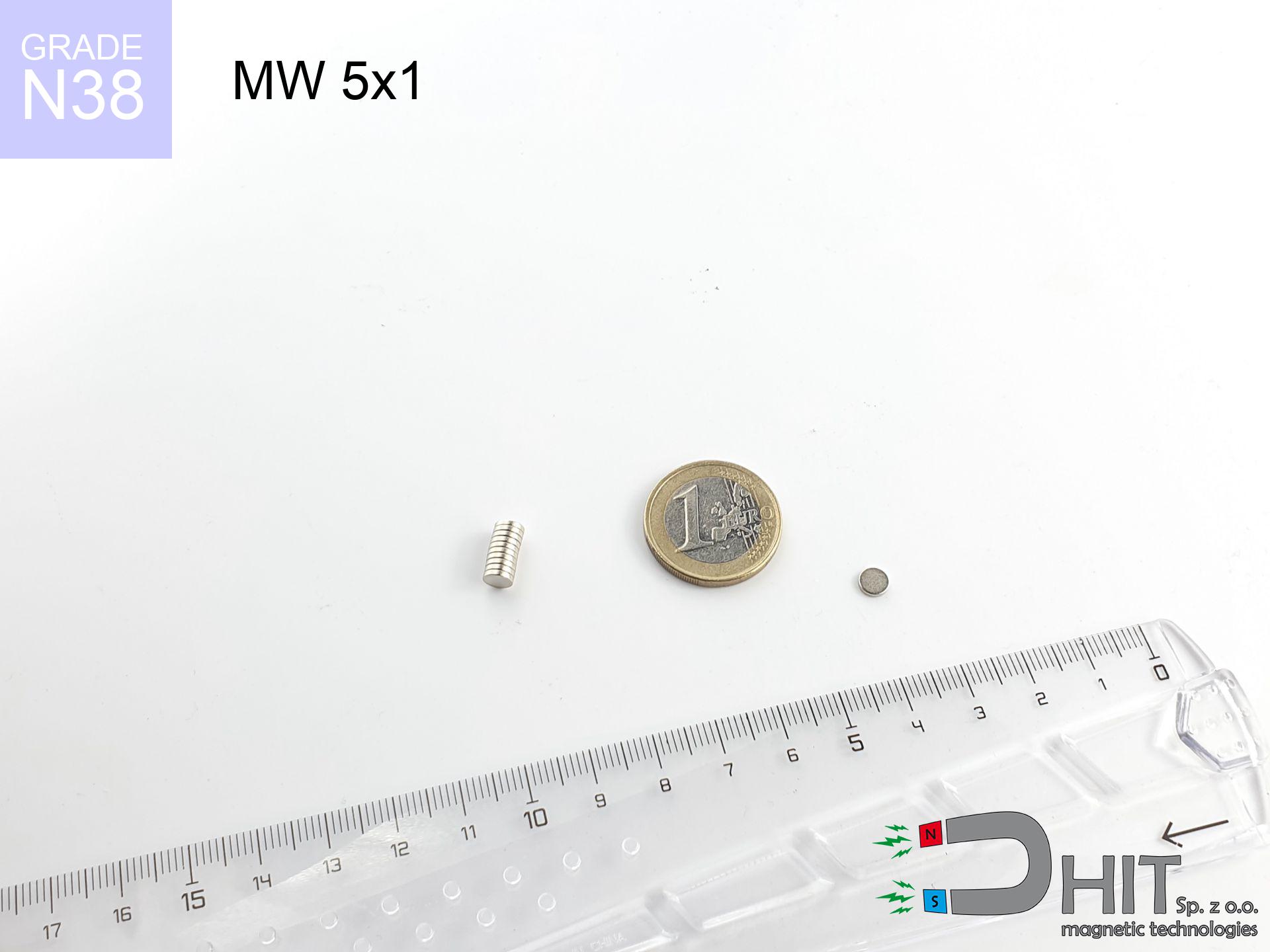JM 15x40 - jajka w pudełku/cena za parę - magnetic eggs
magnetic eggs
Catalog no 270212
GTIN/EAN: 5906301814405
Weight
77 g
7.00 ZŁ with VAT / pcs + price for transport
5.69 ZŁ net + 23% VAT / pcs
bulk discounts:
Need more?
Contact us by phone
+48 22 499 98 98
otherwise send us a note through
our online form
the contact form page.
Specifications as well as structure of a neodymium magnet can be reviewed on our
modular calculator.
Same-day shipping for orders placed before 14:00.
Technical specification - JM 15x40 - jajka w pudełku/cena za parę - magnetic eggs
Specification / characteristics - JM 15x40 - jajka w pudełku/cena za parę - magnetic eggs
| properties | values |
|---|---|
| Cat. no. | 270212 |
| GTIN/EAN | 5906301814405 |
| Production/Distribution | Dhit sp. z o.o. |
| Country of origin | Poland / China / Germany |
| Customs code | 85059029 |
| Weight | 77 g |
| Manufacturing Tolerance | ±1 mm |
Physical properties of sintered neodymium magnets Nd2Fe14B at 20°C
| properties | values | units |
|---|---|---|
| Vickers hardness | ≥550 | Hv |
| Density | ≥7.4 | g/cm3 |
| Curie Temperature TC | 312 - 380 | °C |
| Curie Temperature TF | 593 - 716 | °F |
| Specific resistance | 150 | μΩ⋅cm |
| Bending strength | 250 | MPa |
| Compressive strength | 1000~1100 | MPa |
| Thermal expansion parallel (∥) to orientation (M) | (3-4) x 10-6 | °C-1 |
| Thermal expansion perpendicular (⊥) to orientation (M) | -(1-3) x 10-6 | °C-1 |
| Young's modulus | 1.7 x 104 | kg/mm² |
Material specification
| iron (Fe) | 64% – 68% |
| neodymium (Nd) | 29% – 32% |
| boron (B) | 1.1% – 1.2% |
| dysprosium (Dy) | 0.5% – 2.0% |
| coating (Ni-Cu-Ni) | < 0.05% |
Sustainability
| recyclability (EoL) | 100% |
| recycled raw materials | ~10% (pre-cons) |
| carbon footprint | low / zredukowany |
| waste code (EWC) | 16 02 16 |
See also offers
Advantages as well as disadvantages of rare earth magnets.
Benefits
- They do not lose magnetism, even over approximately 10 years – the decrease in power is only ~1% (according to tests),
- Magnets perfectly defend themselves against loss of magnetization caused by ambient magnetic noise,
- In other words, due to the glossy surface of nickel, the element becomes visually attractive,
- Magnetic induction on the top side of the magnet is impressive,
- Thanks to resistance to high temperature, they are capable of working (depending on the shape) even at temperatures up to 230°C and higher...
- Thanks to flexibility in designing and the capacity to adapt to specific needs,
- Significant place in modern industrial fields – they are commonly used in magnetic memories, motor assemblies, medical equipment, also multitasking production systems.
- Compactness – despite small sizes they offer powerful magnetic field, making them ideal for precision applications
Disadvantages
- At very strong impacts they can crack, therefore we recommend placing them in strong housings. A metal housing provides additional protection against damage and increases the magnet's durability.
- We warn that neodymium magnets can lose their strength at high temperatures. To prevent this, we advise our specialized [AH] magnets, which work effectively even at 230°C.
- Magnets exposed to a humid environment can corrode. Therefore during using outdoors, we suggest using waterproof magnets made of rubber, plastic or other material resistant to moisture
- Due to limitations in producing nuts and complex forms in magnets, we recommend using casing - magnetic mechanism.
- Health risk related to microscopic parts of magnets are risky, when accidentally swallowed, which is particularly important in the context of child safety. It is also worth noting that tiny parts of these products are able to disrupt the diagnostic process medical in case of swallowing.
- With budget limitations the cost of neodymium magnets is a challenge,
Holding force characteristics
Highest magnetic holding force – what contributes to it?
- on a plate made of structural steel, optimally conducting the magnetic flux
- possessing a thickness of minimum 10 mm to avoid saturation
- with an ground contact surface
- under conditions of gap-free contact (metal-to-metal)
- under perpendicular application of breakaway force (90-degree angle)
- in stable room temperature
Practical aspects of lifting capacity – factors
- Gap (between the magnet and the metal), because even a tiny distance (e.g. 0.5 mm) leads to a decrease in lifting capacity by up to 50% (this also applies to paint, corrosion or debris).
- Load vector – highest force is available only during perpendicular pulling. The force required to slide of the magnet along the plate is typically many times smaller (approx. 1/5 of the lifting capacity).
- Steel thickness – insufficiently thick plate does not close the flux, causing part of the flux to be wasted to the other side.
- Material type – the best choice is high-permeability steel. Stainless steels may attract less.
- Surface quality – the more even the surface, the larger the contact zone and stronger the hold. Unevenness creates an air distance.
- Thermal factor – high temperature weakens magnetic field. Too high temperature can permanently demagnetize the magnet.
Holding force was tested on the plate surface of 20 mm thickness, when a perpendicular force was applied, whereas under parallel forces the lifting capacity is smaller. Additionally, even a minimal clearance between the magnet’s surface and the plate lowers the lifting capacity.
Safety rules for work with neodymium magnets
Skin irritation risks
Medical facts indicate that the nickel plating (the usual finish) is a potent allergen. For allergy sufferers, prevent direct skin contact and opt for encased magnets.
Flammability
Fire warning: Rare earth powder is highly flammable. Do not process magnets in home conditions as this risks ignition.
Power loss in heat
Standard neodymium magnets (grade N) undergo demagnetization when the temperature goes above 80°C. This process is irreversible.
Fragile material
Beware of splinters. Magnets can explode upon uncontrolled impact, launching shards into the air. We recommend safety glasses.
Serious injuries
Danger of trauma: The pulling power is so immense that it can cause blood blisters, pinching, and even bone fractures. Use thick gloves.
Electronic devices
Equipment safety: Neodymium magnets can damage data carriers and delicate electronics (heart implants, medical aids, mechanical watches).
This is not a toy
Only for adults. Small elements can be swallowed, leading to severe trauma. Keep away from kids and pets.
Immense force
Before starting, read the rules. Sudden snapping can destroy the magnet or injure your hand. Be predictive.
Health Danger
Individuals with a ICD should maintain an absolute distance from magnets. The magnetism can stop the functioning of the life-saving device.
Magnetic interference
A strong magnetic field negatively affects the functioning of compasses in phones and navigation systems. Do not bring magnets close to a smartphone to avoid damaging the sensors.



![SM 32x150 [2xM8] / N42 - magnetic separator SM 32x150 [2xM8] / N42 - magnetic separator](https://cdn3.dhit.pl/graphics/products/sm-32x150-2xm8-xus.jpg)


![UMH 16x5x32 [M4] / N38 - magnetic holder with hook UMH 16x5x32 [M4] / N38 - magnetic holder with hook](https://cdn3.dhit.pl/graphics/products/umh-16x5x32-m4-lak.jpg)

